Are you prepared for a privacy law compliance audit? In today's digital world, ensuring your business adheres to privacy regulations is more crucial than ever. This article will guide you through the essential steps and best practices to navigate the complexities of privacy laws effectively. So, grab a cup of coffee and dive in to learn how to safeguard your organization and its sensitive information!
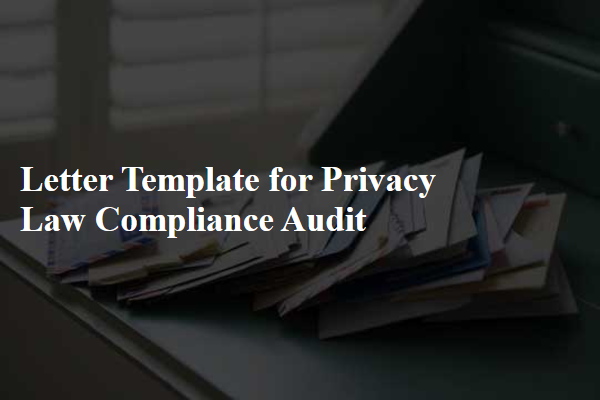
Purpose of audit and scope.
A privacy law compliance audit assesses an organization's adherence to data protection regulations, such as the General Data Protection Regulation (GDPR) enforced in the European Union, and the California Consumer Privacy Act (CCPA). The audit's purpose involves reviewing internal policies, procedures, and practices related to the collection, storage, and processing of personal data, ensuring alignment with legal requirements. The scope encompasses various departments, including Human Resources, Marketing, and IT, evaluating data handling practices and incident response procedures. It also involves examining third-party vendor agreements to confirm compliance with data protection standards, ultimately safeguarding against potential legal penalties and reputational damage.
Legal compliance requirements.
Privacy law compliance audits are essential for organizations to ensure adherence to legal frameworks, such as the General Data Protection Regulation (GDPR) in Europe and the California Consumer Privacy Act (CCPA) in the United States. Audits involve assessing data handling practices, including collection, storage, and processing of personal information from customers. Organizations must maintain records detailing where data is stored, the purpose of data collection, and the duration of data retention. Non-compliance can result in significant fines; for instance, GDPR violations can lead to penalties up to EUR20 million or 4% of annual global turnover, whichever is higher. Additionally, implementing regular audits allows businesses to identify potential vulnerabilities and rectify them proactively, safeguarding user data and fostering trust. Compliance with these regulations not only protects consumers but also enhances an organization's reputation in the marketplace.
Data protection impact assessment.
A comprehensive Data Protection Impact Assessment (DPIA) serves as a critical tool for organizations seeking to comply with privacy laws, such as the General Data Protection Regulation (GDPR) established by the European Union in 2018. This assessment identifies and minimizes risks associated with personal data processing activities, particularly when handling sensitive data types, like health records or financial information. The DPIA outlines the nature of data collected, processing methods, and potential impacts on individuals' privacy rights. Organizations must document specifics, including the purpose of data processing, technology in use, and retention periods, while also engaging stakeholders and data subjects for input. Furthermore, it is essential to review governance measures and identify steps to mitigate any identified risks, ensuring that data protection principles are firmly integrated into the organization's processes.
Data handling and storage policies.
Effective data handling and storage policies are crucial for compliance with privacy laws such as the General Data Protection Regulation (GDPR) in Europe and the California Consumer Privacy Act (CCPA) in the United States. Organizations must implement strict guidelines regarding personal data collection, processing, and retention practices to protect sensitive information. The policies should define data classification levels, specifying categories such as personally identifiable information (PII) and protected health information (PHI), detailing specific handling procedures for each type. Additionally, organizations should outline data storage limitations, requiring regular audits to ensure unnecessary data deletion after retention periods stated in legal guidelines, such as the six-month rule adopted in many sectors. Security measures must include encryption standards to protect data at rest and in transit, ensuring compliance with both state and international frameworks. Furthermore, clear protocols for employee training programs about data protection practices must be established to mitigate risks related to human error or negligence. Regular risk assessments and the appointment of a dedicated Data Protection Officer (DPO) are essential procedures for maintaining compliance and addressing any emerging threats from data breaches or unauthorized access.
Actionable recommendations and corrective measures.
A privacy law compliance audit identifies critical areas requiring attention, highlighting necessary steps for organizations to safeguard personal information under regulations such as the General Data Protection Regulation (GDPR) and the California Consumer Privacy Act (CCPA). Key recommendations include implementing robust data encryption methods to protect sensitive information during storage and transmission, conducting regular employee training sessions on data handling and privacy policies to ensure comprehensive understanding of compliance requirements, and establishing clear protocols for data access control, limiting access to authorized personnel only. It's essential to conduct routine assessments of data processing activities, ensuring documentation is maintained and updated. Moreover, organizations should develop a responsive incident management plan to address potential data breaches efficiently, including notifying affected individuals within stipulated time frames. Finally, a privacy impact assessment should be performed for any new project that involves processing personal data to identify risks and mitigate potential compliance issues proactively.
Letter Template For Privacy Law Compliance Audit Samples
Letter template of privacy law compliance audit request for documentation
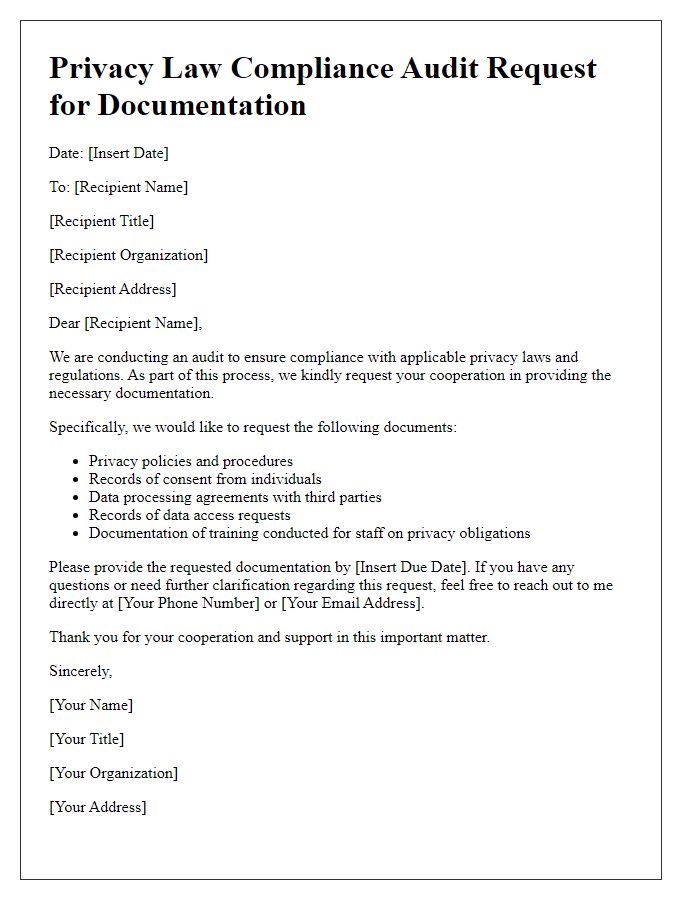

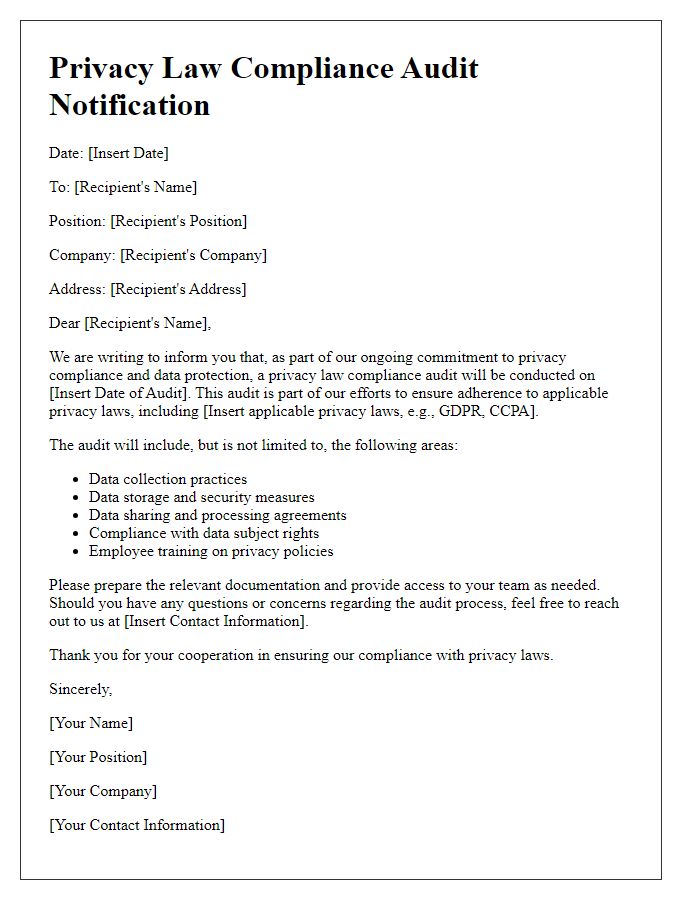
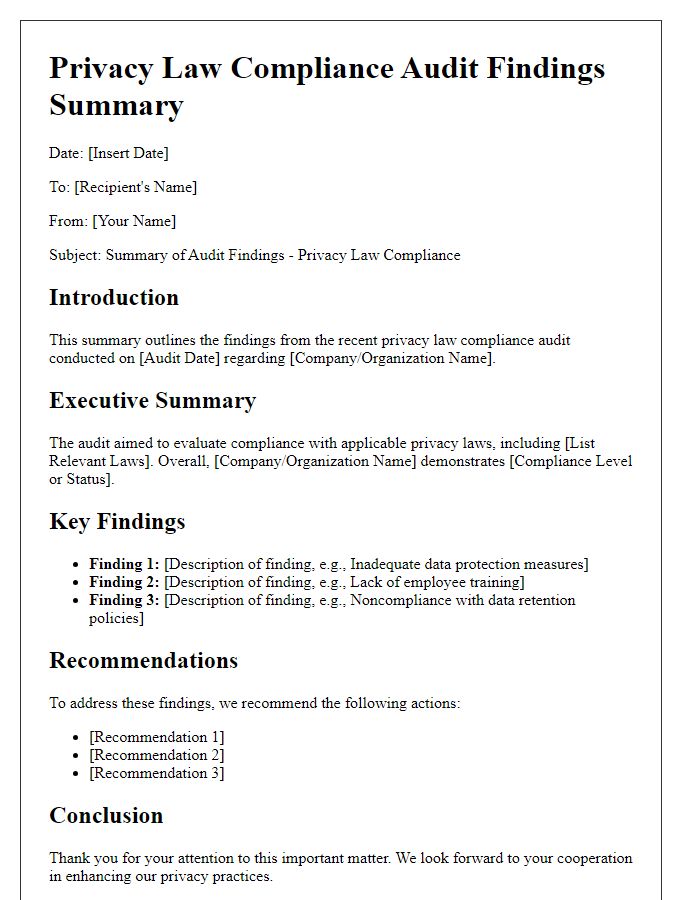
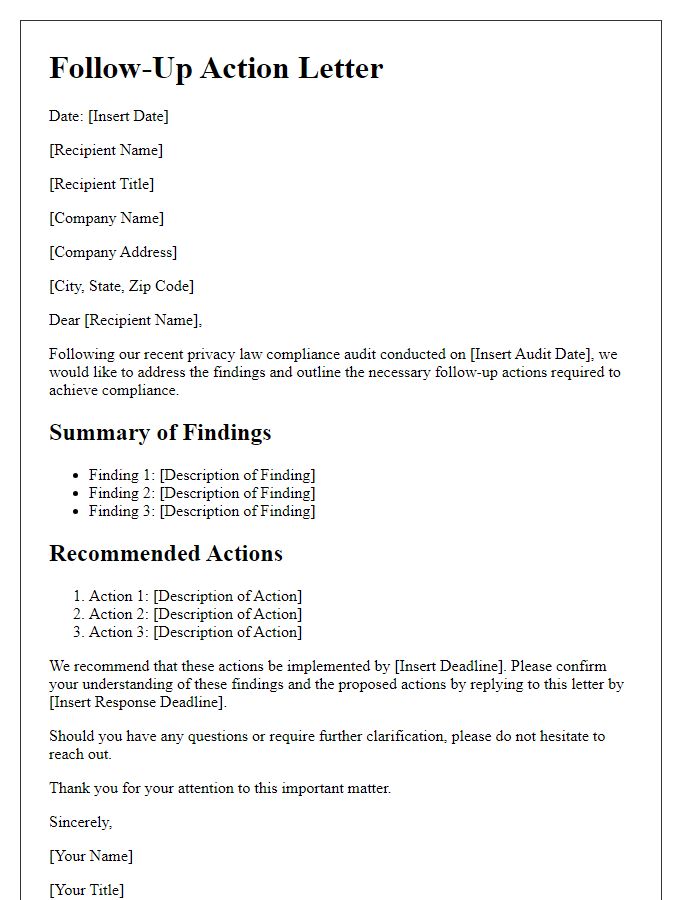
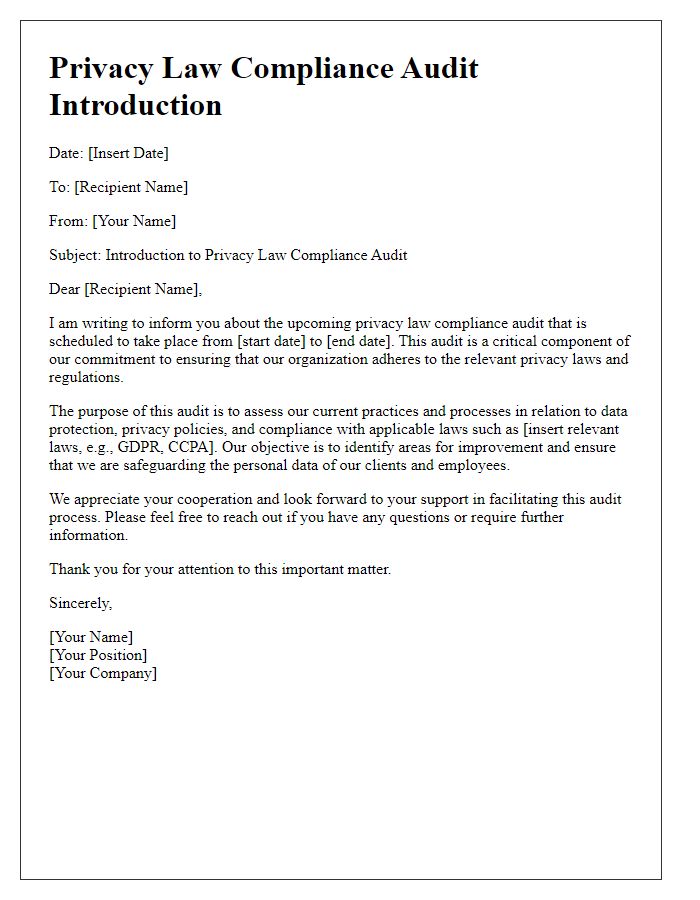
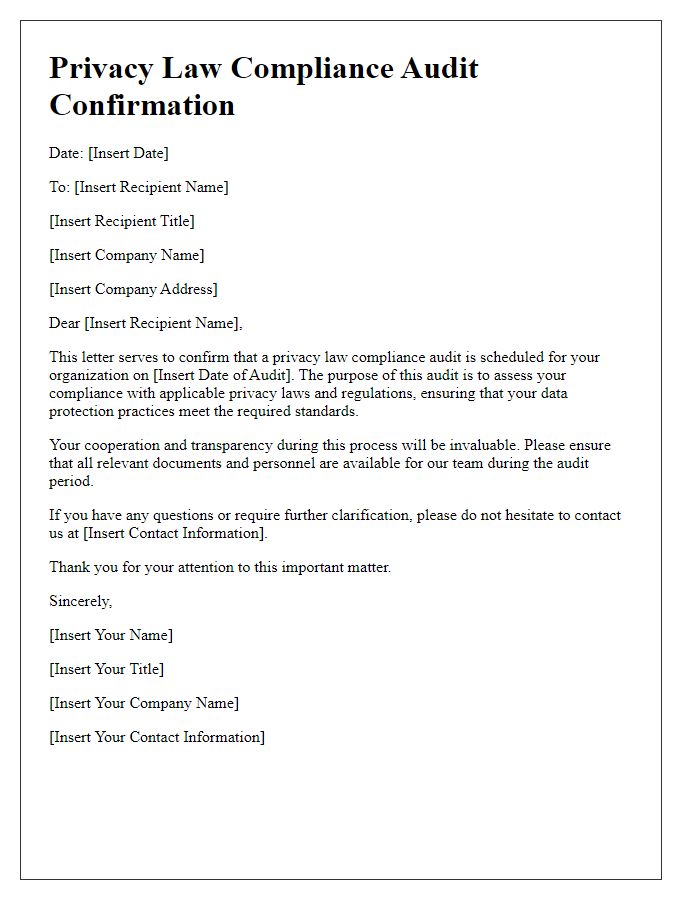
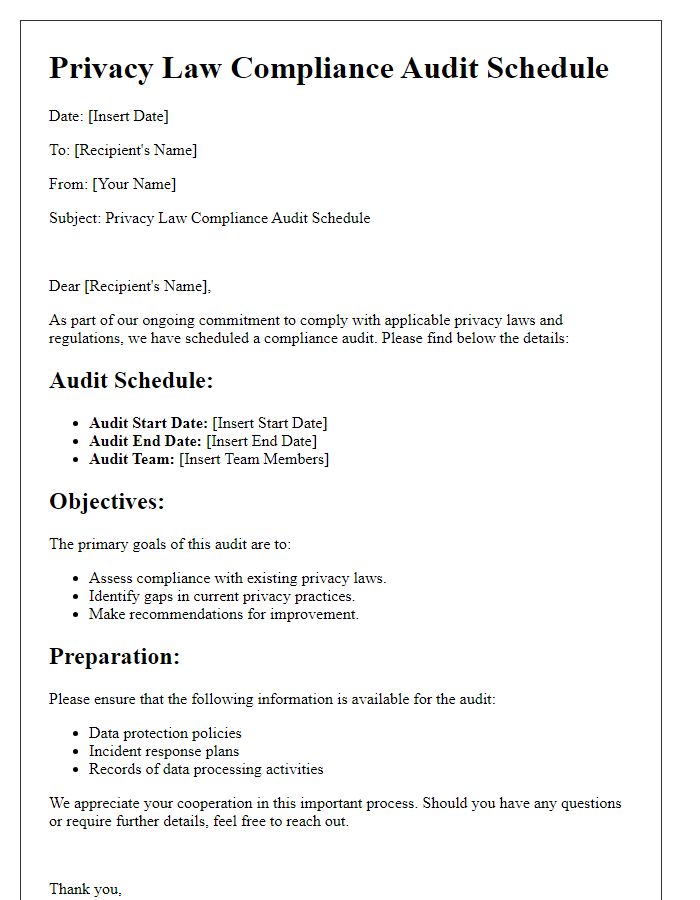
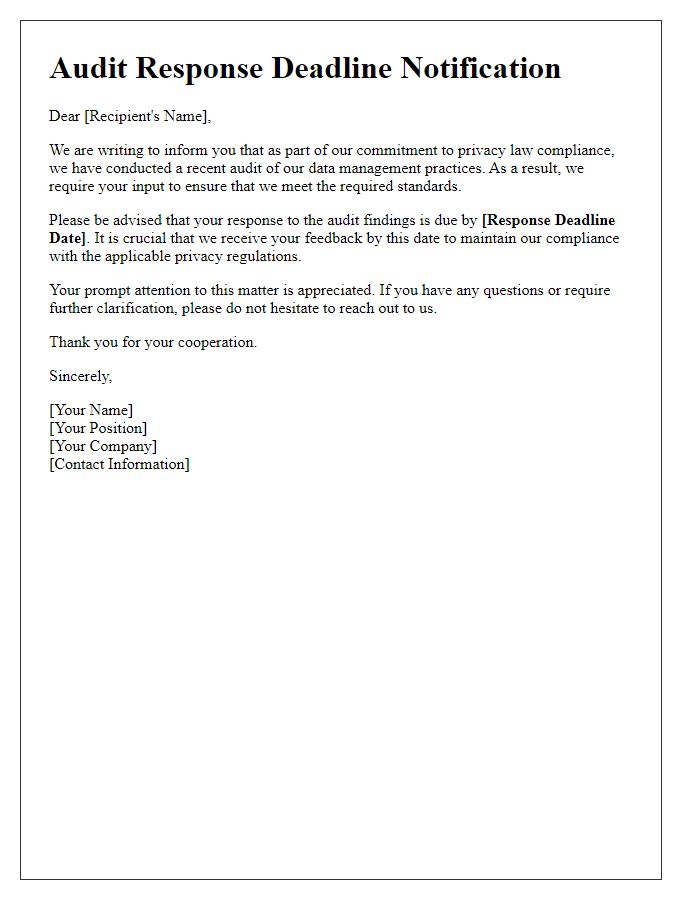
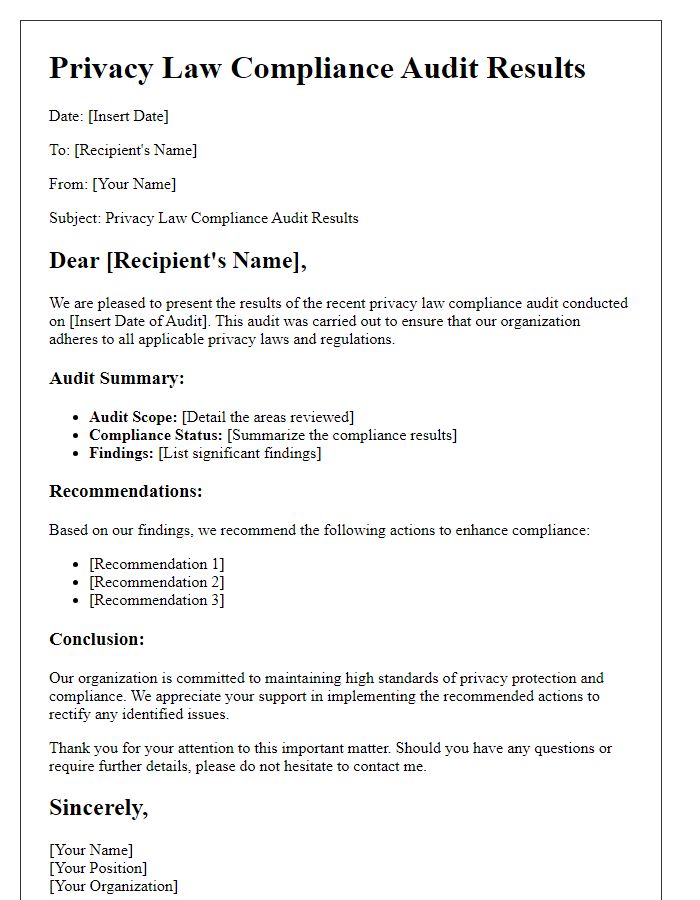
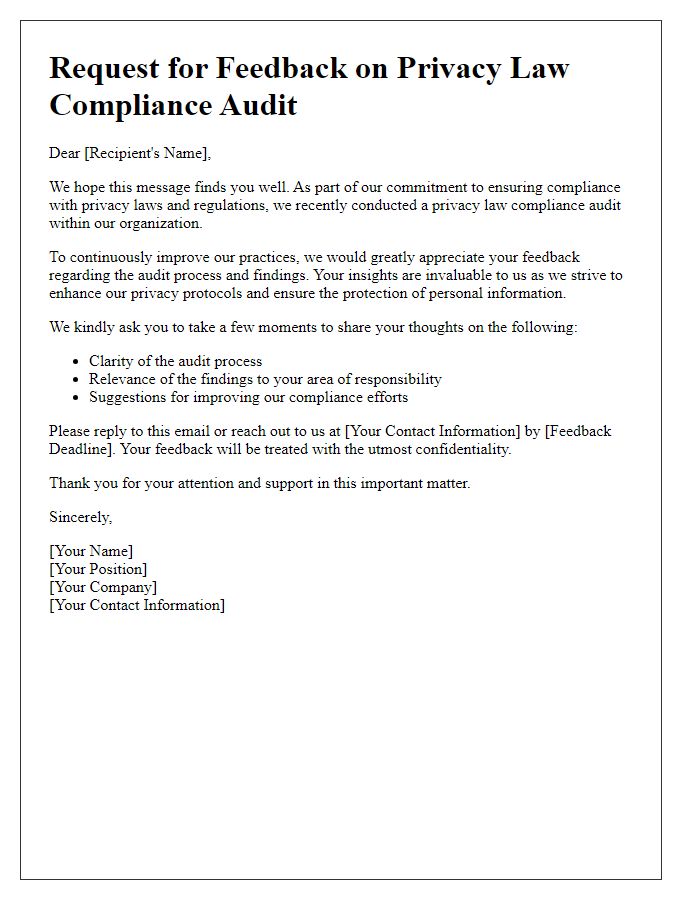


Comments